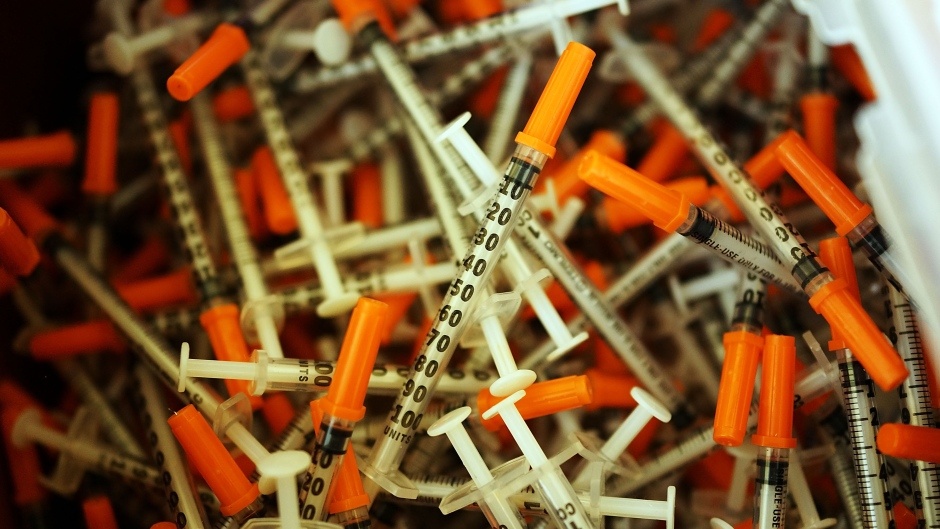 Is addiction a disease or not? That’s one of the most pressing questions in addiction research and recovery today. Neuroscientist, retired professor, and author Dr. Marc Lewis is convinced that addiction is not a disease, and he explains why in this fascinating interview.
Is addiction a disease or not? That’s one of the most pressing questions in addiction research and recovery today. Neuroscientist, retired professor, and author Dr. Marc Lewis is convinced that addiction is not a disease, and he explains why in this fascinating interview.
The Disease Model of Addiction Debate
“Muddle” is an apt word choice for the current state of affairs in the "addiction is a disease" / "addiction is not a disease" debate.
On one hand, we have respected organizations such as the National Institutes of Health (NIH), which defines addiction as “a chronic and relapsing brain disease.”
On the other hand, we have an emerging network of top psychologists, psychiatrists, and other medical professionals, including Dr. Marc Lewis, calling for a new definition.
About Dr. Marc Lewis
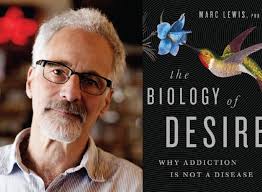 Dr. Marc Lewis is a neuroscientist and recently retired full professor of developmental psychology at the University of Toronto. He is the author or co-author of over 50 journal publications in psychology, cognitive science, and neuroscience as well as several books.
Dr. Marc Lewis is a neuroscientist and recently retired full professor of developmental psychology at the University of Toronto. He is the author or co-author of over 50 journal publications in psychology, cognitive science, and neuroscience as well as several books.
He offers a new perspective on addiction, one that links brain, behavior, and biography. In his book The Biology of Desire: Why Addiction is Not A Disease, Marc Lewis makes a convincing case that addiction is not a disease, and shows why the disease model has become an obstacle to healing.
(You can read a free excerpt here.)
Beginning during his undergraduate years in Berkeley, CA, Lewis experimented with a large variety of drugs, eventually becoming addicted to opiates. He moved to Toronto in 1976 and began to study psychology at the University of Toronto. After quitting drugs at age 30, he continued his graduate education in developmental psychology. He received a Ph.D. and license to practice psychology and later joined the faculty at the University of Toronto.
“A bracing and informative corrective to the muddle that now characterizes public and professional discourse on this topic.”
- Dr. Gabor Mate, addiction expert and author
In his book, Lewis reveals addiction as an unintended consequence of the brain doing what it's supposed to do-seek pleasure and relief-in a world that's not cooperating. Brains are designed to restructure themselves with normal learning and development, but this process is accelerated in addiction when highly attractive rewards are pursued repeatedly.
Dr. Lewis shows why treatment based on the addiction disease model often fails, and how treatment can be retooled to achieve lasting recovery, given the realities of brain plasticity.
A Conversation with Dr. Marc Lewis on Brain Disease and Addiction
In our interview with Dr. Lewis, we discussed …
- Defining addiction as a learned behavior, and why that definition matters
- The three prevailing addiction paradigms debated in science and policy today
- How Dr. Lewis’s own experience with addiction informs his study and research
- Why our brains are designed for addiction (and what we can do about it)
- How emotional suffering plays a major role in the development of addictions
- How to work with “emotional starvation” and heal on an emotional level
- Why personal motivation is essential to recovery
We’re grateful to Dr. Lewis for taking the time to talk with us.
Addiction as a Learned Behavior
Caroline: In your book The Biology of Desire you talk about addiction as a "learned behavior," one that’s learned faster than others. Is it fair to say that addiction is a habit, albeit a very destructive one?
Dr. Marc Lewis: It’s definitely a habit, and it’s often destructive. People get addicted to all kinds of things, and naturally an addiction to heroin or methamphetamine is much more harmful than an addiction to pot, for example.
Competing Definitions of Addiction
Caroline: In the first chapter of your book you present the current competing definitions of addiction:
- Addiction as a disease,
- Addiction as a choice, and
- Addiction as self-medication.
Dr. Marc Lewis: Often the addiction-as-a-choice model and the addiction-as-a-disease model are put at opposite extremes, as contrasting models.
If it’s not a disease, then it must be a volitional choice.
And if it’s a free choice, then addicts are blameworthy for what they do.
And if it’s a disease and they’re not blameworthy, then they deserve help.
I see that as a false dichotomy, as a very extreme choice between two radically simplistic options.
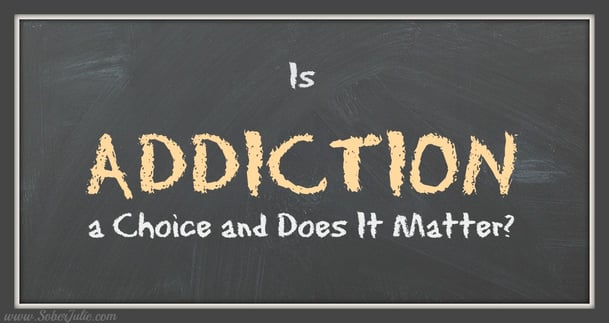 Where self-medication comes in is the idea that people take different substances or overeat, or become porn addicts or gambling addicts or Internet addicts because there’s a hole there, there’s something that doesn’t feel right.
Where self-medication comes in is the idea that people take different substances or overeat, or become porn addicts or gambling addicts or Internet addicts because there’s a hole there, there’s something that doesn’t feel right.
And doing these things or taking these things is a way to feel better; makes them feel connected, makes them feel alive, makes them feel more relaxed. So, it is a kind of medication.
The distance between the disease and choice dichotomies … there’s a place in the middle where you can think of addiction as a biological phenomenon, one which does not preclude choice.
The Pitfalls of the Addiction Disease Model
Caroline: Proponents of the prevailing disease model of addiction say that it allows for increased treatment opportunities and research funding. However, it also has some serious drawbacks, including reduced recovery rates.
In your view, how has the addiction disease model held people back from healing?
Dr. Marc Lewis: As you say, there’s a high degree of passivity built into the [brain disease] model. According to the model, addiction is a chronic and relapsing disease.
Chronic diseases are by definition, incurable. You can control them, you can manage them … but they don’t go away. And that’s not just wordplay.
All of this funding, all of this research especially in the United States is due to a very powerful medical orientation, a medical high church, which controls the funding through NIDA, through NIH, that gets allocated to people who are studying cellular processes and chemical processes in the brain.
And the outcomes are often well-received. This has changed, that has changed … then this must be a disease, because all of these things are changing in the brain.
For me, as a developmental psychologist, of course experience changes the brain … change refers to something new in the permutation of biological data.
Caroline: You were addicted to drugs in your twenties, and you’ve been clean for a long time. How has your subjective experience helped you when it comes to understanding the science of addiction?
Dr. Marc Lewis: In a number of ways …. You asked in a previous question about some of the drawbacks of the addiction-as-a-disease model, and passivity.
We can think of passivity in a number of  ways. When you have a very strong psychological attraction, a strong psychological relationship, whether it’s to a drug or to an activity or to a person, as when you’re in love with someone.
ways. When you have a very strong psychological attraction, a strong psychological relationship, whether it’s to a drug or to an activity or to a person, as when you’re in love with someone.
This might be a partner, someone who’s very difficult to live with, yet you do. Habits proceed to build on themselves; you do something that gives you a sense of connection or relief … a sense of pleasure, perhaps, but more a sense of relief.
And then there’s loss, and there’s a sense of, “Oh, that didn’t go to well,” so you repeat. But each time you go through the cycle, there are changes.
And we now recognize that there are changes in the brain level. That’s what we see with addiction, with me in my twenties. I experienced the changes as a stronger and stronger attraction to something which I hated more and more.
For me, that psychological work, redefining your purpose, engaging your willpower ... all of that stuff was hard to do.
But actually, most addicts do eventually recover. And most addicts recover without any form of treatment, which is something that most people don’t realize.
Recovery and Self-Identity
Caroline: I love your point that you come to hate the substance that you’re dependent upon … is it accurate to say that being able to recover involves a strengthened sense of self, of identity? Saying, “I don’t want to be the person who is subject to this substance”? Is that accurate?
Dr. Marc Lewis: Yes, very much so. It goes both ways sometimes. There’s a weakening, a feeling of, “Oh, I can’t do this.” And it starts to drive the sense of, “I’m not going to go there. I don’t have to do this.”
It’s growing up, as well. A lot of people who go through addiction in their twenties actually stop in their thirties. It’s a developmental process. Why? Because in your thirties you are different than you were in your twenties. You realize that life is finite!
What Causes Addiction in the Brain?
Caroline: One very important question you raise in your book is, “What does the brain do in addiction?” And I love your chapter two title: A Brain Designed for Addiction.
So, how would you answer that question – what does the brain do in addiction? And why are our brains designed for addiction?
Dr. Marc Lewis: What the brain does is create its own [pathways] according to experience.
The only way the brain changes is through experience.
There’s no actual maturation or timetable 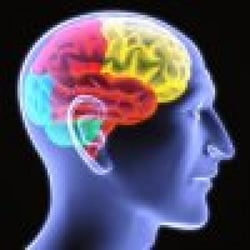 which pushes brain change on its own except puberty, in which obviously the brain changes, but as far as firing up neurons and synapses … it’s largely experience.
which pushes brain change on its own except puberty, in which obviously the brain changes, but as far as firing up neurons and synapses … it’s largely experience.
This is a brain that has been designed to be incredibly plastic. Neuroplasticity is the capacity for the brain to change, to go many routes—you can go this way or you can go that way, there are countless ways ….
And the brain is equipped to do all of those things by recycling the experience, the focus of attention, other possibilities, other contexts and senses of oneself start to dissipate, fall off the radar … because this continues to feed the experiential cycle. And that is shaping your neural network, your synaptic patterns … so that’s who you become, with what you do.
And of course there are [genetic] vulnerabilities, but really experience is the magic conductor.
And that’s only one way of looking at addiction. There’s also this: the brain wants to be efficient. It doesn’t look around for different ways to do what you did yesterday and the day before. It likes predictable patterns; that’s how it can conserve your energy. It’s really a remarkable thing.
Emotional Suffering is Real Suffering
Caroline: I love how you include such detailed personal narratives. One of my favorite parts of your book was the chapter on Natalie, a college student who ends up addicted to heroin and doing time in jail.
You recount how she realized that she’d been depressed for most of her teenage years. But she always thought it wasn’t that bad, because, “She couldn’t quite believe that emotional suffering is real suffering, that it counts.”
That’s exactly what we treat in our Program – the underlying [core issues like] depression, anxiety, helplessness, self-loathing [that fuel addiction].
Download E-Book Healing Core Issues
So, could you say more about the emotional suffering that leads so many people to use?
Dr. Marc Lewis: It’s almost a definition issue; what could suffering be, what constitutes suffering? Obviously it can be physical pain, but mostly in our lives, in our culture, our society, we don’t go around getting scarred and wounded very much. So most of it goes deeper than anatomy. We don’t have a model for respecting the intensity and the impact of emotional suffering.

[Natalie] spent most of her adolescence alone, reading books, isolated, not realizing that her parents weren’t there for her.
And we don’t necessarily want to blame parents for everything - they have their own hardships - but I think that society more generally tends to think about, “You should tough it out, you should do it all yourself, you should put yourself together, get out there, do what you need to do.”
And a lot of us aren’t equipped for that in our adolescent years.
Anorexia and Addiction
Caroline: Yes, you have another section on Alice, who dealt with anorexia, you have another great line: “In both [anorexia and addiction] it is the surrender to self-deprivation that gives rise … to the spiraling growth of overwhelming need.”
You call it “emotional starvation” and I think that’s a great term. So, what can people do if they discover that they’ve been experiencing emotional starvation?
Dr. Marc Lewis: It’s a complex analogy, and anorexia is a complex issue. I don’t claim to completely understand it. But obviously anorexia involves brain changes, right? And binge-eating disorder has a lot more obvious aspects in common with drug addiction, so that’s an easier comparison to make.
The parallel is that people in addictions need to recognize that their addictions are taking them down this path, that their lives are becoming more and more contracted, empty, less.
And yet they persist, because they don’t know how to stop.
So, coming to accept that [emotional starvation], to say, “This is what I deserve, this is all I’ve got, this is all there is,” I think that’s sort of parallel [to physical starvation].
What we see in addiction is making do with something that’s very rigid and empty and uni-dimensional.
Caroline: I like that … it’s very meager, it’s very narrow, “This is all I get."
Dr. Marc Lewis: There’s another experiential parallel, which is that anorexia is often categorized rather than as a lack of self-control, as an excess of self-control.
When we talk about addiction to substances we speak about a lack of self-control. But in a funny way, addiction is also about a kind of recurrent self-control, based on a very narrow set of options, it’s very focused, very driven.
Caroline: I can see that … it really goes against that stereotype that everyone who struggles with addiction is lazy. And in the Natalie section, you talked about the ritual of using, the discipline and practicing all of these intricate, complex steps.
Dr. Marc Lewis: Yes. That’s often the case with drug addiction and you’re right, I refer to it in the section on [Natalie] using needles.
And with Alice with her eating disorder, there was a ritual of counting calories, and making lists, and all of that stuff.
So you have to wonder, what does ritual actually mean when it leads up to the same reward every time?
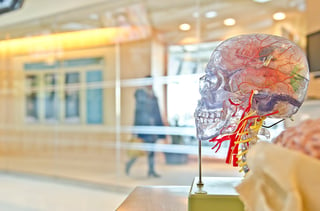 There’s a very interesting analogue, which is that the dopamine system - which fuels the part of the brain that’s responsible for drive and attraction - starts to become triggered first by the reward itself, the drug or the food or the booze or the gambling.
There’s a very interesting analogue, which is that the dopamine system - which fuels the part of the brain that’s responsible for drive and attraction - starts to become triggered first by the reward itself, the drug or the food or the booze or the gambling.
But then over time it becomes triggered by the cues leading up to the reward, the associations with it.
So you can get the cues that make you excited and attracted, the ones leading up to the conventional, final reward. It’s a fascinating way to think about the brain’s role in addiction, how it associates behaviors that way.
In my book I go through some of the neuroscience in a very user-friendly way, but I do explain and emphasize the way the attraction to the thing you’re addicted to goes through a set of transformations, and you can actually see what’s happening in the brain: where the dopamine’s coming from, where it’s going to, how it changes the synaptic patterns.
You can watch it happen, with parallel changes in behavior, motivation, and psychology.
And then you can watch the opposite … though we don’t necessarily change back, I’d say we change forward, both the brain and the behavior.
The Importance of Motivation in Recovery
Caroline: You view getting past addiction as a developmental process, so what would you say to those listening who are dealing with addiction right now?
How would you encourage them to keep moving forward?
Dr. Marc Lewis: That’s a tough question … there’s no one size fits all. Some people do well with the 12 Steps, for example; many people do not.
Then there’s a whole panoply of psychological interventions.
There’s Cognitive Behavioral Therapy (CBT), Motivational Interviewing; there’s meditation techniques, and connections with people, intimacy with people that you want to be close to, all of these approaches and strategies to help you.
And they often help people in different ways depending on their needs, depending on how they’re set up psychologically, what the addiction is, and how long they’ve been in it.
And of course one of the most important things is motivation. If someone decides, “I’m not changing,” then forget it. But you have others who say, “Well, I really don’t want to do this anymore.”
That’s when you strike, when the iron is hot.
Dr. Marc Lewis now spends his time writing for the popular press, blogging, and giving talks on addiction and related topics.
Watch Another Interview Where Dr. Lewis Explains Why Addiction is Not a Disease:
Our Perspective on the Disease Model of Addiction Debate
Where do we stand on this hot-button issue?
“From our perspective, addiction is a dysfunctional set of behaviors that alters brain chemistry and neurocircuitry. It is a disorder that impacts the individual on all levels: physical, mental, emotional, and spiritual.
That said, we're hesitant to refer to addiction as a disease, because of the associations of powerlessness that term invokes.”
See more in Is Addiction a Disease? What Medical Experts Think.
Yearning to learn more about the core issues that can cause addiction and emotional distress? Download our free copy of Healing Underlying Core Issues.
Download E-Book Healing Core Issues



